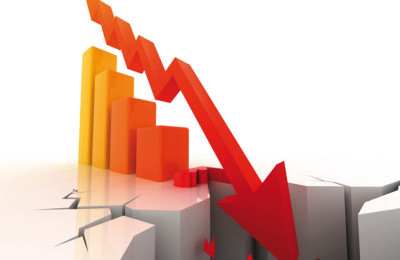
Monira Matin
Shares in the world’s largest life and pensions companies have been hit for a second day following the announcement on Friday that Britain has decided to leave the European Union.
International life company Standard Life has been worst hit after its shares plunged by nearly 23% since the Brexit vote result was confirmed, tumbling 6.5% on Monday morning.
Europe’s largest insurer, Axa’s share price has fallen 19% since Friday, nose-diving 5.5% on Monday morning.
Shares in Generali, Italy’s largest life company, have continued to plummet – falling 4.58% on Monday and 19.5% post-Brexit result.
Dutch-headquartered Aegon saw its share price tumble 6.4% on Monday morning, falling 17% overall.
Old Mutual stock fell 6.5%, dropping 2.84% on Monday.
Zurich shares have recovered somewhat from the fallout - down just 7% on their pre-Brexit price, falling 2.25% since the markets opened.
Meanwhile, UK insurers Aviva and Prudential have also experienced a massive hit with stock prices tumbling nearly 20% for the former and 15% for the latter.
Low interest rates
The news comes as analysts speculate on the damage that Brexit could inflict on insurers’ customer base and investment portfolios.
Ned Cazalet, a life industry analyst who runs research firm Cazalet Consulting, said life companies have seen their share prices drop due to their vulnerabilities to falling bond yields and the predicted cuts in interest rates.
On Monday, Britain’s 10-year government borrowing costs sank below 1% for the first time ever, signalling that the Bank of England will cut rates in a bid to shore up the pound – which nose-dived to a fresh 31-year low against the dollar.
“Life companies such as Standard Life which have the annuities type exposure either for back book or if they’re actively writing annuities are affected by bond yields falling.
“Lower interest rates increase the value of liabilities. If you’re running a business that has got a solvency buffer between assets and liabilities, you may find that the liabilities are rising faster than the assets so that the solvency requirements are getting squeezed,” Cazalet told International Adviser.
Corporate debt exposure
Another concern driving the plunge in insurers’ shares, said Cazalet, is their investments in the banks, which have been hit the hardest in the aftermath of the Brexit vote.
“A lot of insurers are holding corporate debt, a substantial chunk of the corporate bonds are issued by the banks.”
On Friday, shares in the FTSE 100's five big banks fell 21% on average as markets digested the results of the referendum - with Germany's Deutsche Bank down more than 13% and France's Societe Generale more than 20% lower.
This article was originally published by International Adviser
